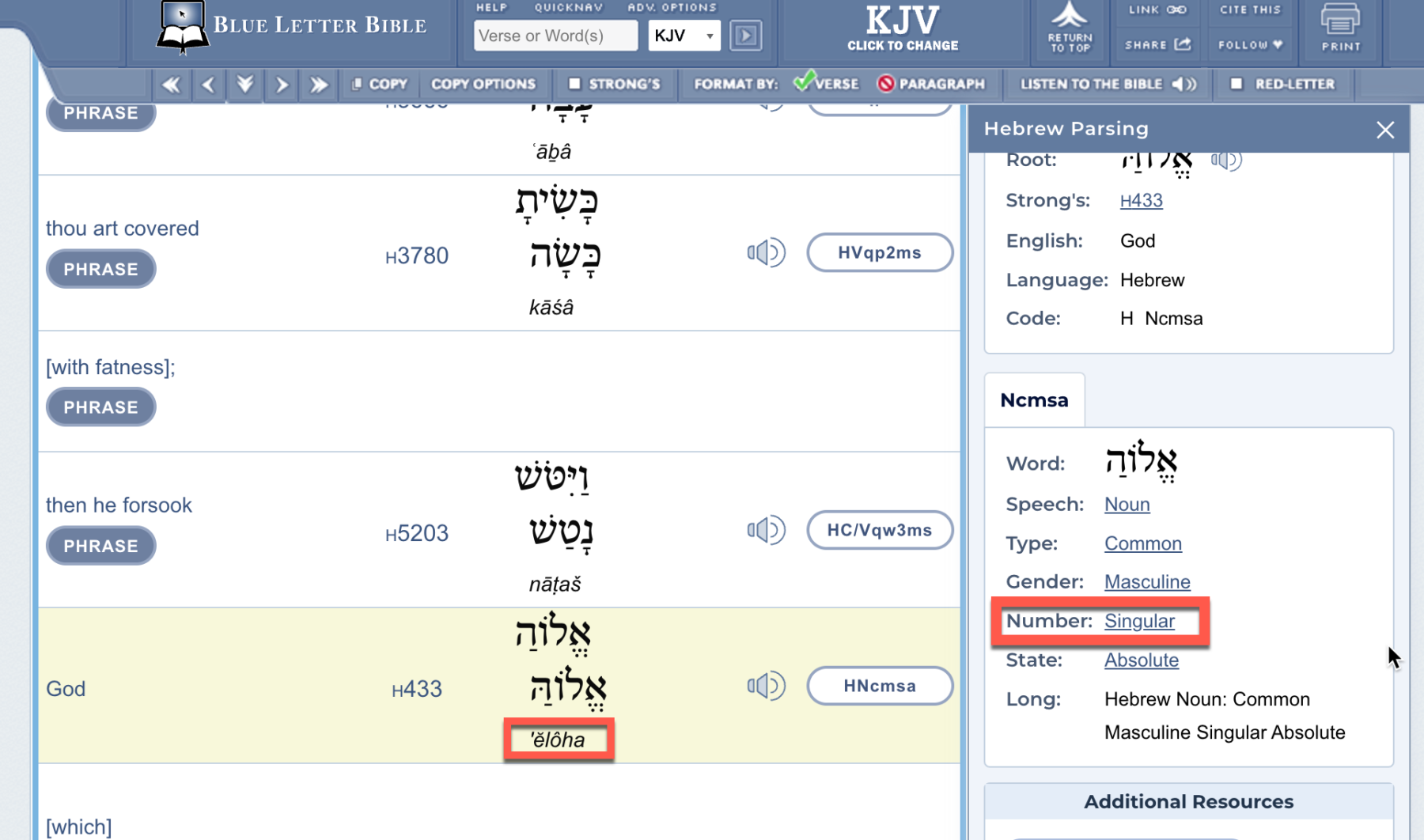A conclusion was made by a Master Divinity graduate and history scholar that there is no relation between the plural name Elohim (אֱלֹהִים) and the trinity. His argument can be read in the following link below.
First, this writer is technically more schooled than myself who is a M.Div graduate. So his perspective carries weight. However, like a good Berean, we should all critically examine and test whether what is being taught is according to truth. Also, I’m not a Hebrew scholar, but we can still research and investigate if a claim holds water or not.
A question I would have for the writer is that he said Eloah is the second most used plural form of El in the Hebrew Bible.

But when I look up the definition for Eloah, it is the absolute singular form of Elohim, and according to etymology, probably the prolonged (emphat.) from El (אֵל)


Eloah is also used in the singular form when referring to a single false god, among many false gods (Elohim), of nations. (2 Chronicles 32:14-15)

Also, Eloah is consistently used in the absolute singular every time I see in the Bible.

In his conclusion, I don’t think his evidence is sound enough to be able to definitively state that there is no relation between the plural name and the trinity. One friend suggested that the linguistic development of Hebrew is complicated and not well documented. I think the writer’s conclusion should be treated as a conjecture, and not as a fact.
Also, he seems to think the writers of the Old Testament were limited by the language of the day, to not be able to be more explicitly clear. However, the Bible says God is not the author of confusion. If the plural form Elohim was the only form available for a reference to God, then conceivably the argument might be made that the writers of the Hebrew Scriptures had no other alternative but to use the word Elohim for both the one true God and the many false gods. However, the singular form for Elohim (Eloah) exists and is used in such passages as Deuteronomy 32:15-17 and Habakkuk 3:3. This singular form could easily have been used consistently. Yet it is only used 250 times, while the plural form is used 2,500 times. The far greater use of the plural form turns the argument in favor of plurality in the Godhead rather than against it.
A good article to study about seeing the Trinity in the Hebrew Scriptures can be found in the link below by Arnold Fructenbaum.
https://jewsforjesus.org/learn/the-trinity-based-on-the-hebrew-scriptures
If I have a misunderstanding here, I would definitely be glad if someone pointed out a logical error. I’m not a Hebrew scholar. The Bible says:
Instruct a wise man, and he will be wiser still; teach a righteous man, and he will increase his learning.
Proverbs 9:9
Feel free to leave your comment below.
Leave a Reply